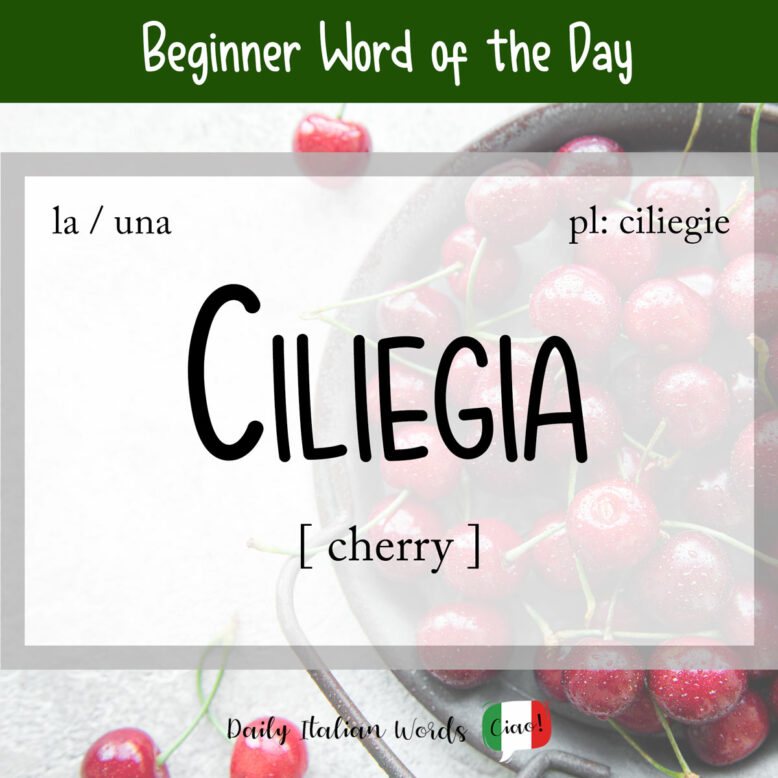The word for cherry in Italian is ciliegia (feminine). According to Treccani, the proper plural form is ciliegie, but up until the middle of the last century, the spelling ciliege was also fairly widespread. It comes from the Latin ceresia, which in turn derives from the Greek κερασος.

The word for cherry tree is formed by replacing the word-final a with an o.
Ho raccolto una manciata di ciliegie dal ciliegio in giardino.
I picked a handful of cherries from the cherry tree in the garden.
The diminutive ciliegina (lit. little cherry) refers to the glazed cherries used for desserts. As in English, you can say la ciliegina sulla torta (the cherry on top) in order to describe something perceived as the finishing touch to something that is already excellent. It’s an allusion to cakes which are often topped with cherries.
Occasionally, ciliegia can be used as an adjective to describe something that is cherry-red in colour.

Finally, we have the expression Una ciliegia tira l’altra (lit. One cherry pulls another) which is an idiomatic way of saying Cherries are addictive! or Once I start eating cherries, I can’t stop! The pulling reference can be traced back to the fact that cherries usually come in pairs, attached by their stems, so when you go to grab one, you usually end up with two.
You can also use this expression figuratively to describe something that isn’t easy to stop once it starts. For example:
Le bugie sono come le ciliegie: una tira l’altra.
Once you start telling lies, you can’t stop.
(In the same way you can’t stop eating cherries once you start.)
Finally, amico ciliegia (lit. cherry friend) is a playful way of calling someone who is notorious for their astuteness or cunning, but you don’t want to name explicitly. It is a reference to the maggot that is often found inside fruit, including cherries.
Heather Broster is a graduate with honours in linguistics from the University of Western Ontario. She is an aspiring polyglot, proficient in English and Italian, as well as Japanese, Welsh, and French to varying degrees of fluency. Originally from Toronto, Heather has resided in various countries, notably Italy for a period of six years. Her primary focus lies in the fields of language acquisition, education, and bilingual instruction.


